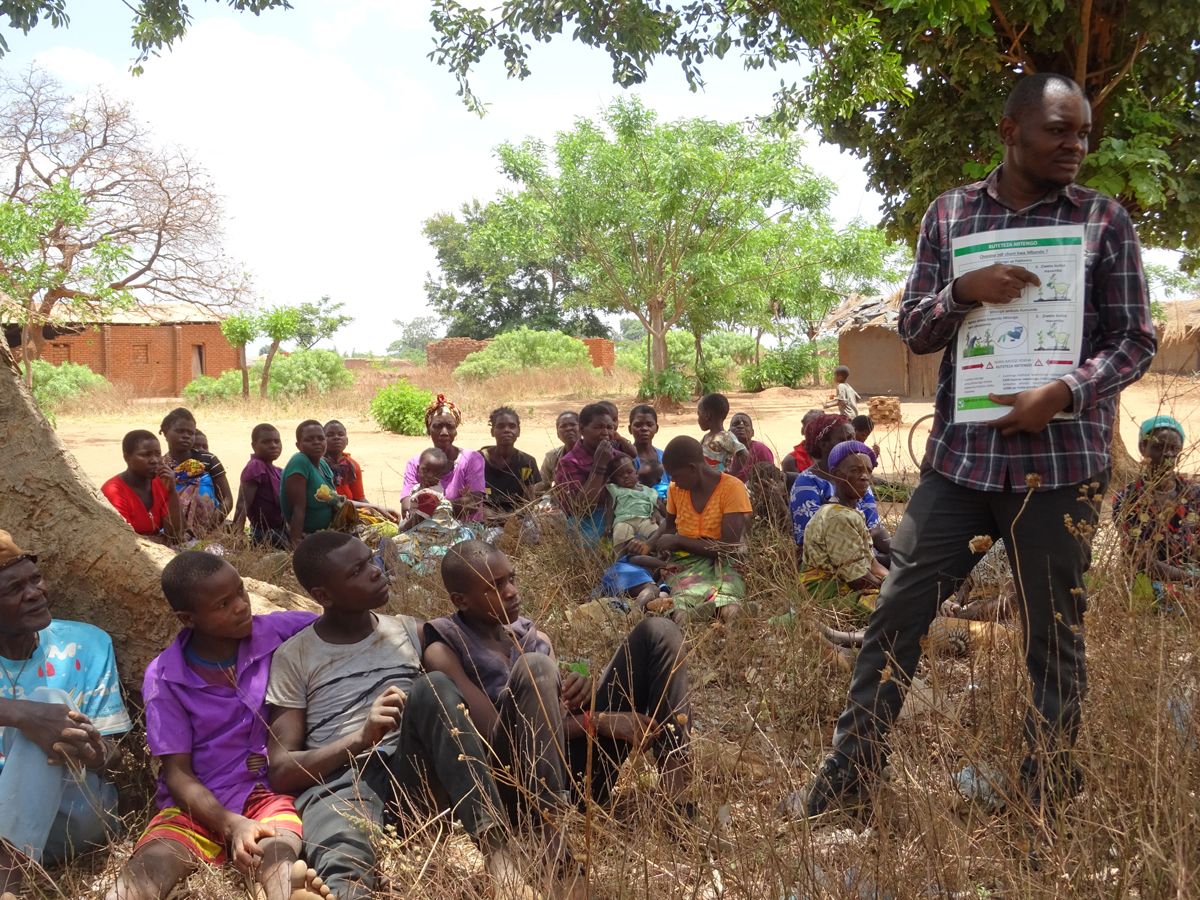In Malawi, the agroforestry project funded by Reforest'Action and implemented by the NGO Inter Aide aims to increase the energy self-sufficiency of local communities and support subsistence farming by integrating trees in hedgerows around cultivated fields. With a strong community dimension, the project supports farmers at every stage in the creation of these agroforestry systems, from the production of trees in nurseries to their planting and maintenance. The programme is designed to run for three years, starting in 2021, and aims to produce and plant a total of 300,000 trees in various villages in the Lilongwe district by 2024.
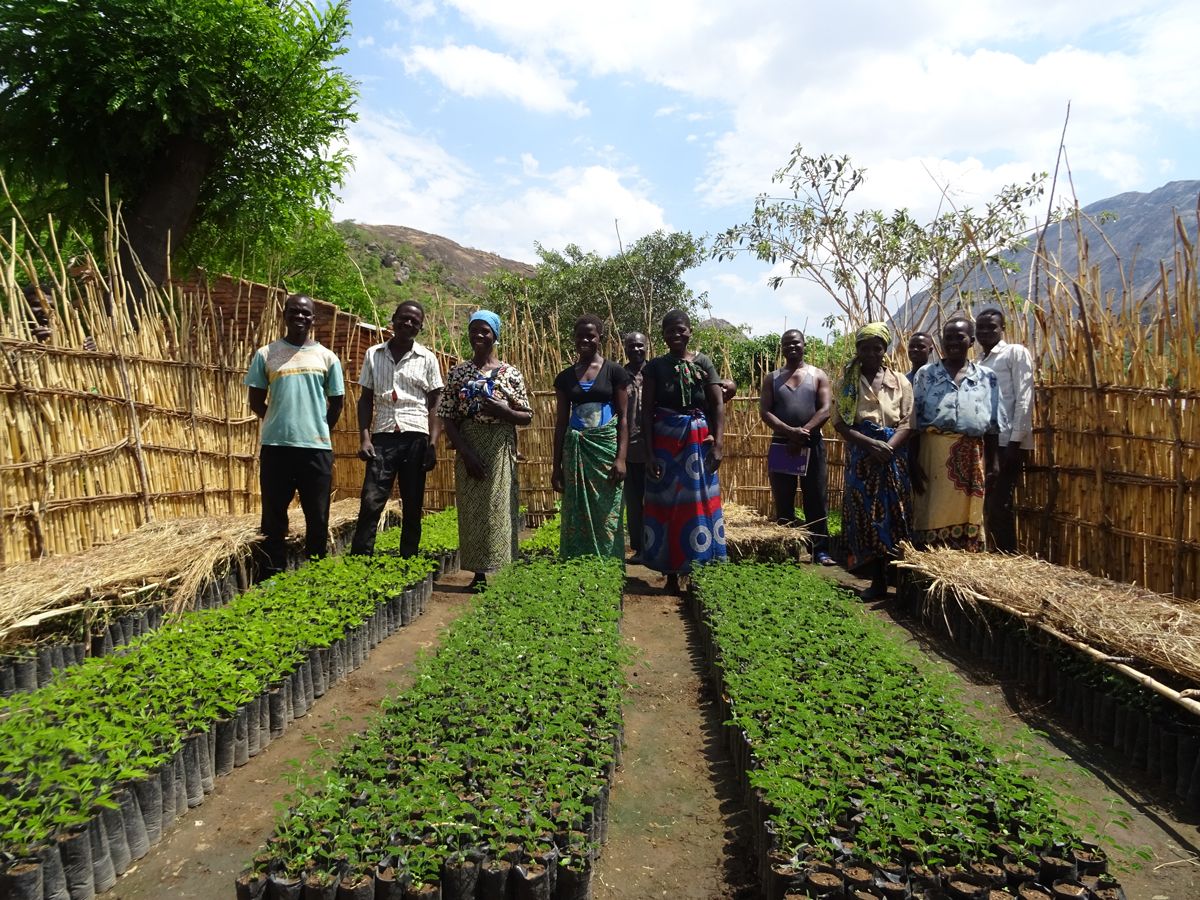
Lilongwe, an arid region with no forest cover
Malawi is a small, landlocked country in south-east Africa, bordering Tanzania, Zambia and Mozambique. Named after the country's capital, the district of Lilongwe features a landscape of plains with scattered rocky hills. In this particularly arid region, there is little or no forest cover. The project takes place in an agricultural context where maize and soya are the dominant crops, often in conjunction with groundnuts. The income of the local communities comes mainly from the production of their farms or from their work on neighbouring properties. The small proportion of fruit trees associated with these crops often takes the form of hedgerows.
In this context, the whole point of the project lies in integrating trees into agroforestry to counter desertification, produce wood sustainably in a region that lacks energy autonomy, and support the livelihoods of local communities. The project is also part of the national forest landscape restoration strategy, which aims to achieve 10% forest cover on 80% of Malawi's cultivated land by 2030.
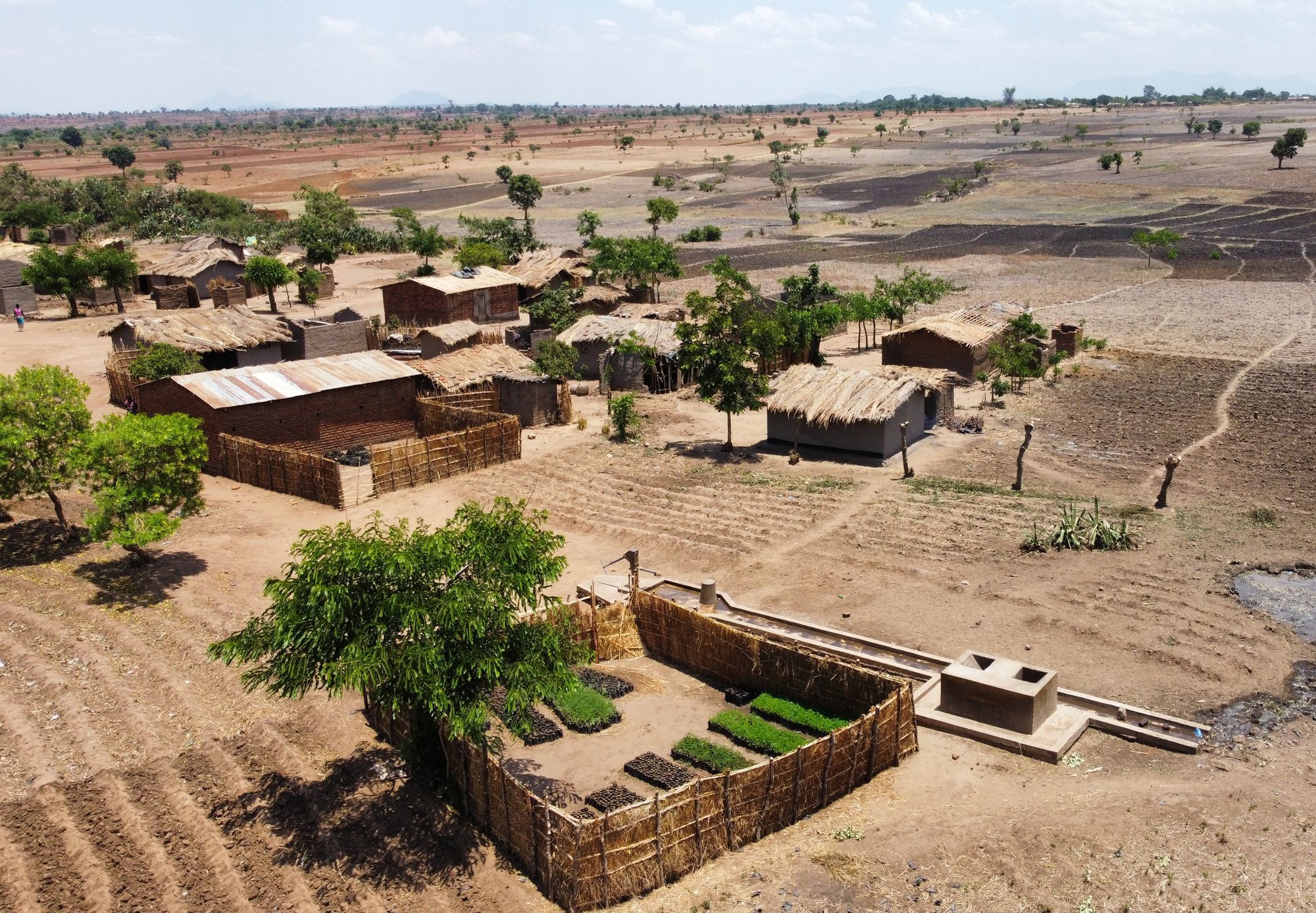
Agroforestry for sustainable wood production and protection of subsistence crops
With a strong community dimension, the aim of the project initiated in 2021 with the support of Reforest'Action is to create agroforestry systems alongside farmers in several localities in the Lilongwe district. It is designed to run for three years and aims to produce and plant a total of 300,000 trees by 2024.
On the ground, the project is being implemented by the NGO Inter Aide, which has been training rural communities in Malawi in the creation of tree nurseries and tree planting since 1997, and therefore has excellent local knowledge and relationships of trust with the local authorities and farmers.
A total of six species have been selected for the project design:
- Senna spectabilis, a tree with melliferous flowers that is particularly appreciated by pollinators
- Senna siamea, a heat-resistant shade tree whose rapid growth means it can produce wood sustainably through pruning
- Acacia polyacantha, a tree native to the Sahelian to tropical regions of the continent, valued in agroforestry for its ability to enrich poor soils and produce firewood
- Albizia lebbeck, a tree renowned for its particularly dense wood, nicknamed 'black wood'.
- Khaya nyasica, a tall, fast-growing tree native to East Africa, also known as African mahogany, which is useful for shading underlying crops and producing timber
- Faidherbia albida, a tree native to Sahelian Africa, particularly remarkable for its inverted phenology, which optimises crop yields, feeds its leaves to livestock and combats soil erosion. With leaves in the dry season, it feeds animals with its fodder and pods. Conversely, during the rainy season (December-January in Malawi), the leaves come off completely, allowing the underlying crops to be properly nourished by the rain and light.
These species have been selected for their adaptation to arid soil and climate conditions and their ability to form hedgerows around degraded farmland.
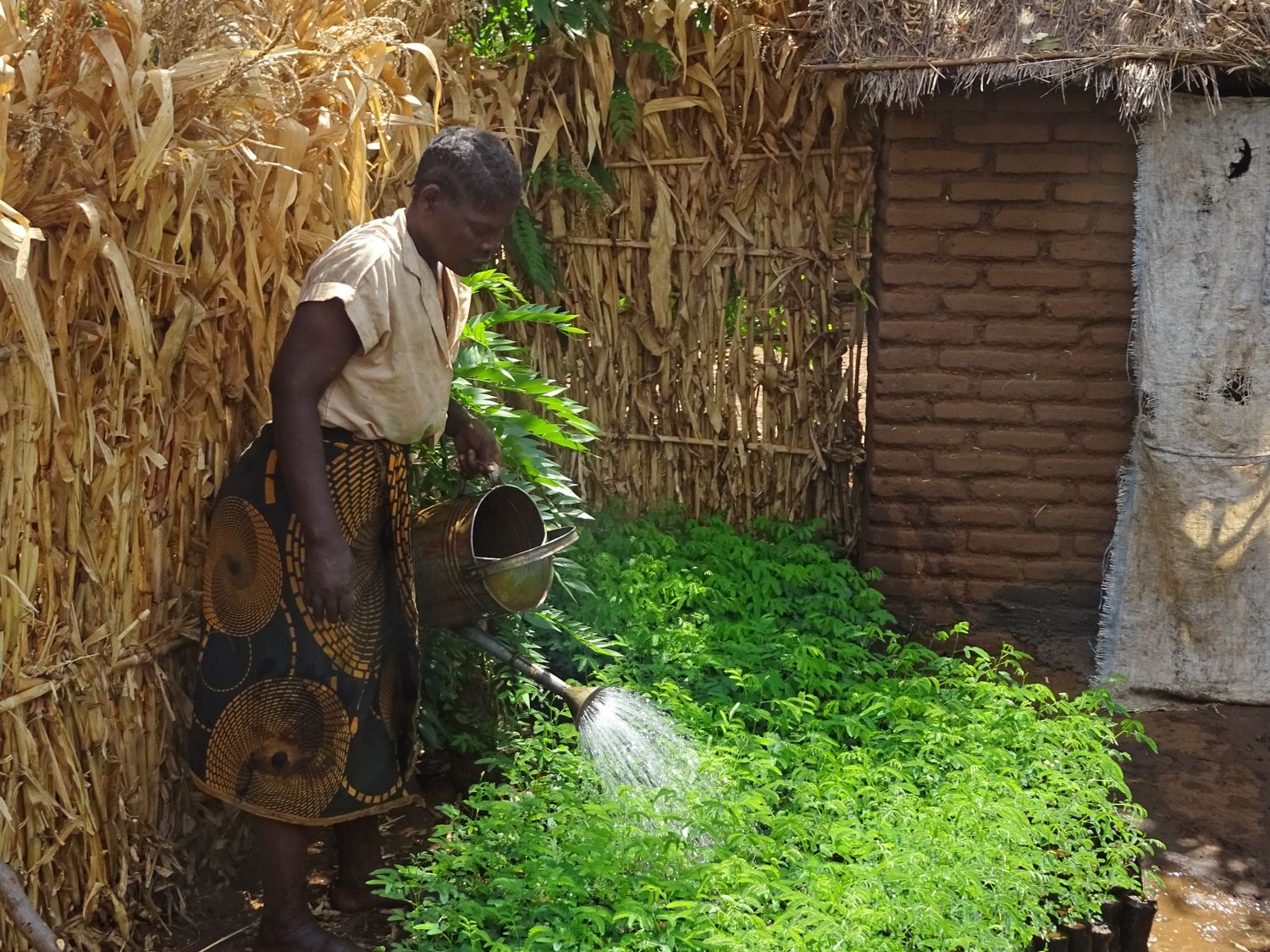
The projected benefits are numerous and will be monitored over time:
- production of wood energy to improve household energy self-sufficiency,
- restoration of the environmental functions of cultivated plots,
- combating erosion of cultivated soils,
- preserving biodiversity thanks to the plant cover,
- increasing agricultural yields.
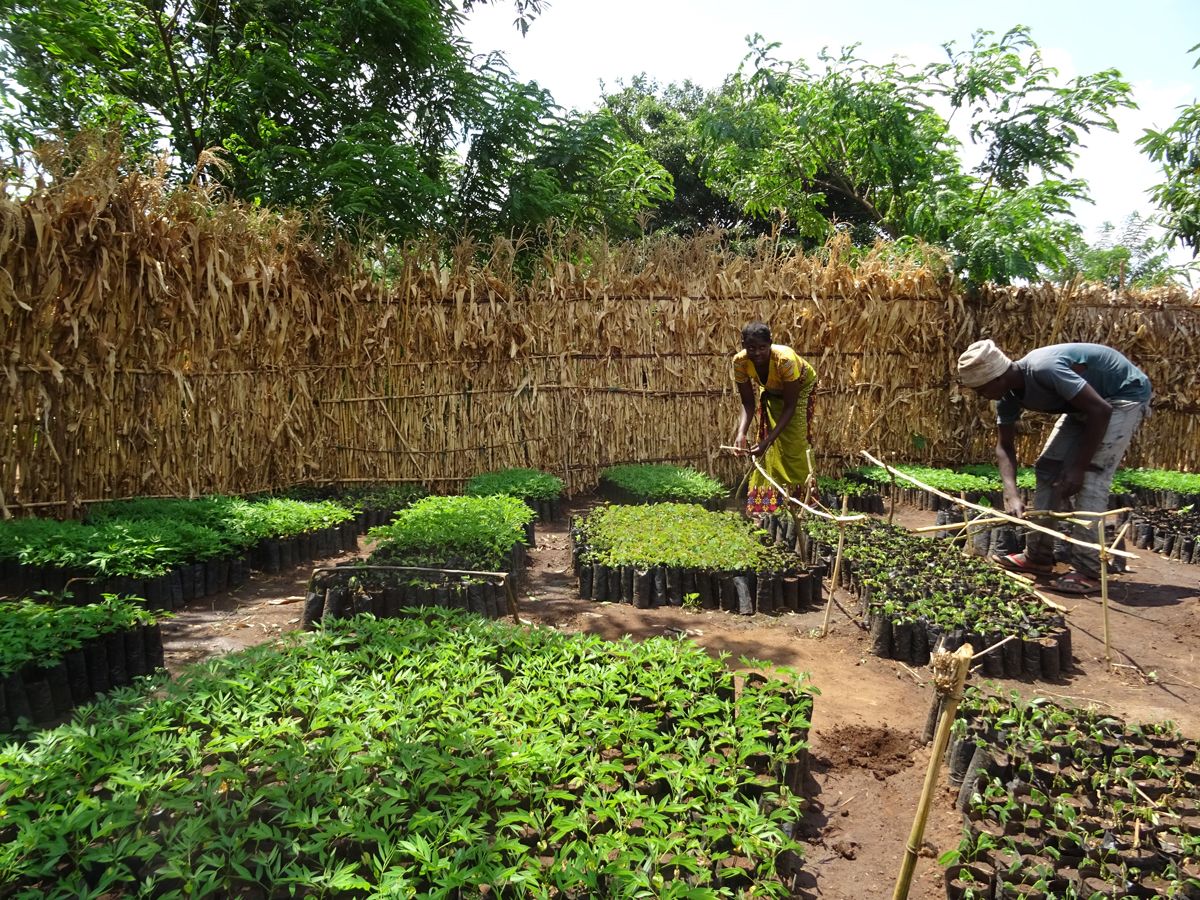
A positive assessment at the end of the first two years of project deployment
In August 2023, an audit carried out by Reforest'Action made it possible to verify in particular:
- the progress of the project and the geolocation of the plots,
- the number of trees planted, their density and the diversity of species,
- the success rate of the plantations,
- the level of technical expertise of the project implementer in terms of planning, structuring, soil preparation, transport of seedlings, waste collection, etc.
- the involvement of local communities in the project,
- and their perception of the socio-economic benefits.
Two years into the project, 214,060 trees have already been planted in Chidambayila, Chikanga, Chilembwe, Chizinga and Mgombo. A total of 1,567 families have been involved in tree production in some thirty dedicated community nurseries, using seeds from Malawi. They then benefited from planting the trees on their farmland or family properties.
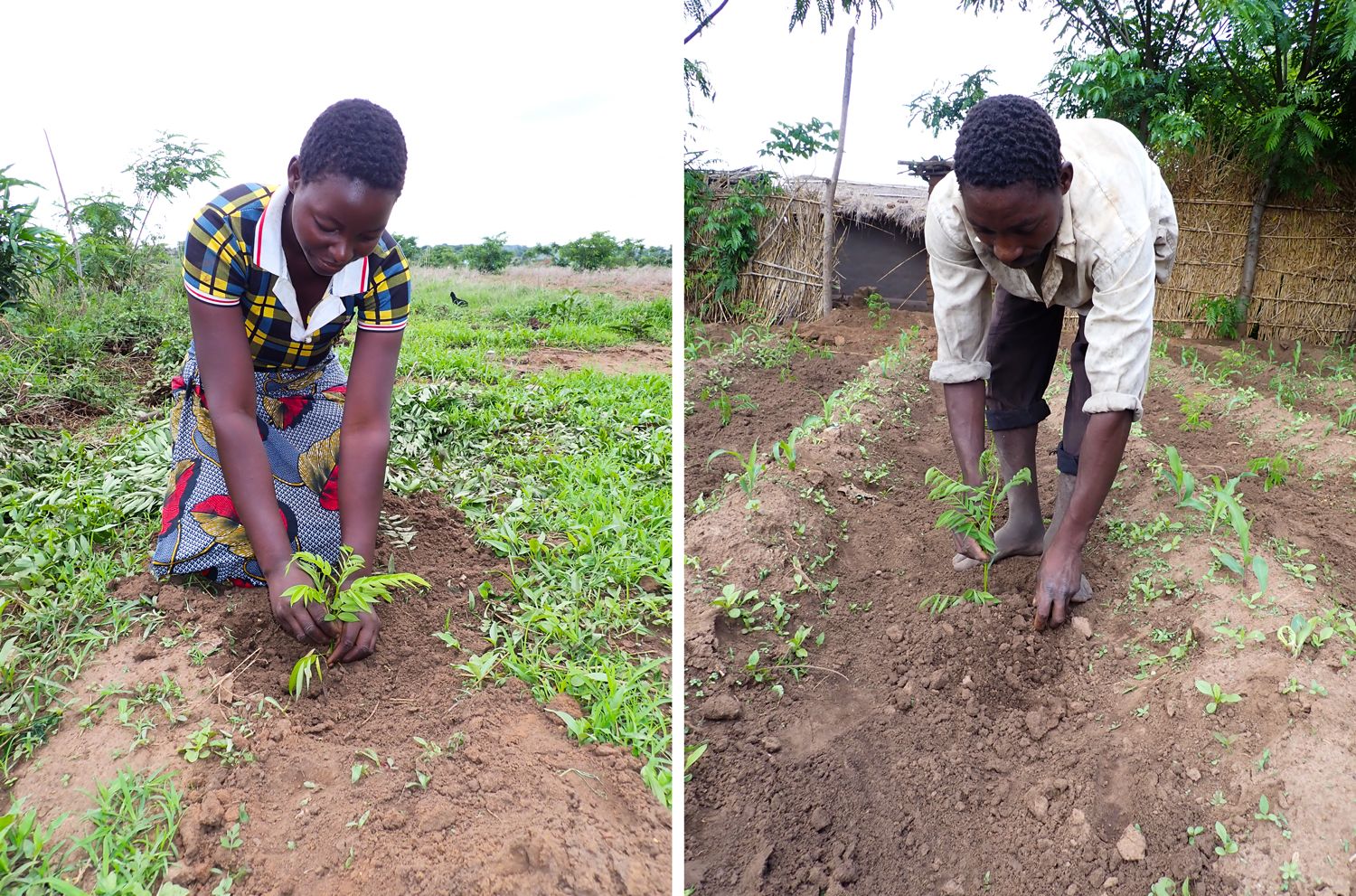
One of the strengths of the project is undoubtedly its community-based approach, which aims to be replicable by farmers even beyond the project's three planned seasons. Through a programme of training delivered by Inter Aide to local communities, they will be able to apply their knowledge of seedling production, hedge design and the maintenance of planted trees, to further the initial ambition of this programme and help increase their energy self-sufficiency and protect their subsistence agriculture.
The third season of the project is currently underway, and should enable a further 85,940 trees to be planted by 2024.
